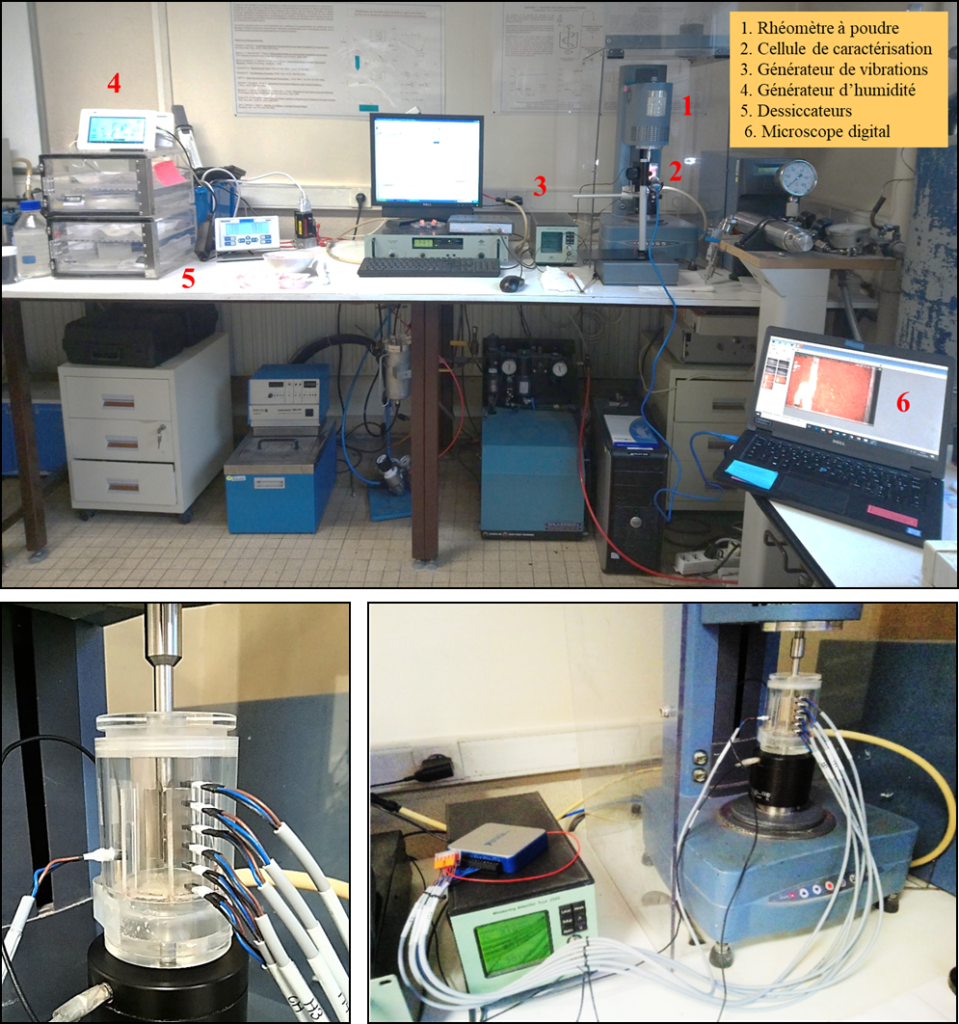The rheology platform of the EMPP cluster gathers the equipment and skills of two laboratories: the LEMTA and the LRGP. These two laboratories of the EMPP research department work on different aspects around the rheology theme with a set of complementary equipment.
solid rheology platform
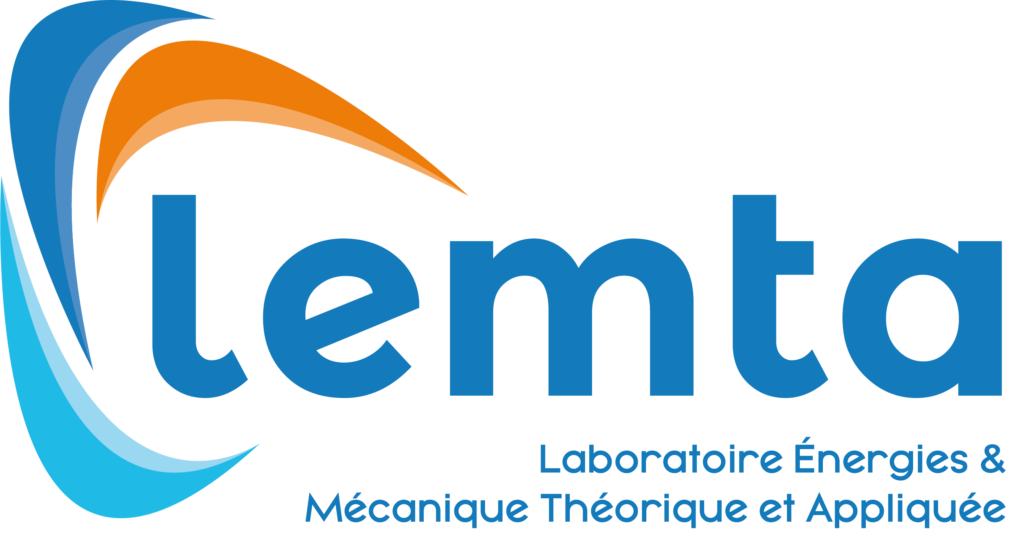
Polymeric materials
Composite materials
Thermo-mechanical tests
In the solid rheology platform of LEMTA, we have a versatile experimental park dedicated to the study of thermomechanical properties of polymers and composites. A wide range of tests can be performed:
- Mechanical spectrometry (DMA) in tensile, compression, flexural or shear mode (on film)
- Multi-axial tests (tension-torsion);
- Tensile or bending tests at temperature;
- Study of fatigue properties;
- Relaxation and creep tests.
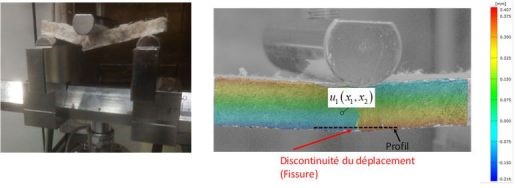
Three-point bending on a wood composite aerogel
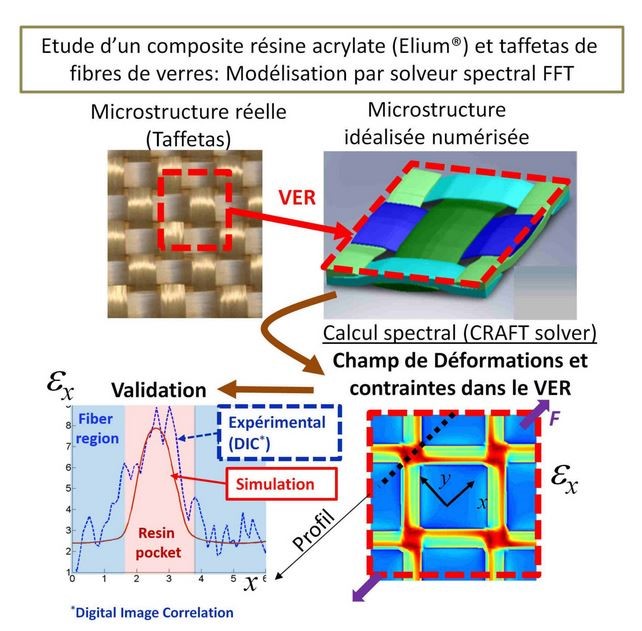
Heterogeneity of the deformation field at the textile scale in a glass/acrylate resin taffeta composite: measurement by 3D image correlation and simulation with a spectral solver (Craft)
Fluid rheology platform

Powders and suspensions
Threshold fluids
Active suspensions (magnetic, biological)
Rheometry
Thanks to the fluid rheology platform of LEMTA, we characterize, by classical rheometry approaches, the rheological behavior of complex fluids such as gels, granular media and powders, emulsions, suspensions of particles and biological objects.
In parallel, we develop mainly optical methods to obtain local information on the behavior of these fluids: spatial organization and dynamics of particles, local measurement of speed, concentration, etc.
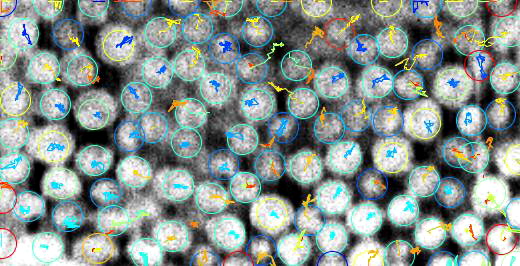
Trajectories of grains in a vibrated granular suspension obtained by particle tracking and refractive index adaptation techniques
Design of a device for tracking the spread of a granular paste subjected to vibrations for the measurement of rheological properties
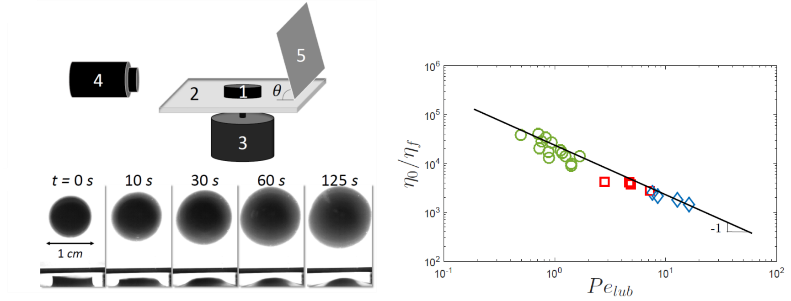
Product engineering platform

Emulsion-émulsification
Powder rheology
Interfacial rheology
Systemic rheology
High-temperature and high-pressure rheology
The rheology platform of the LRGP, which includes about fifteen rheometers with imposed deformation and constraint and two viscometers, allows the characterization of rheologically complex fluids including molten polymers or in solution, liquid/liquid dispersions (emulsions, solid/liquid (suspensions), gas/liquid (foams), surfactants, granular and powdery media. Coupled with optical measurements (microscopy, spectrophotometry, light scattering) or in situ conductimetric measurements, rheological measurements allow real-time monitoring of the properties of complex formulated media that evolve or even react during their elaboration or transformation.
It is possible to perform:
- Structural characterization of samples (mechanical spectroscopy, rheophysics)
- To reproduce on a small scale certain processes (agitation/mixing, emulsification, synthesis)
- Rheological characterization of granular and powdery media
- Measurements under high pressure and high temperature
- Interfacial rheology measurements
Ci-dessous :
Cellule de mesure de rhéologie sous haute pression et haute température (400 bars, 400°C) équipée d’un mobile d’agitation et permettant, notamment, de travailler sous CO2 supercritique :
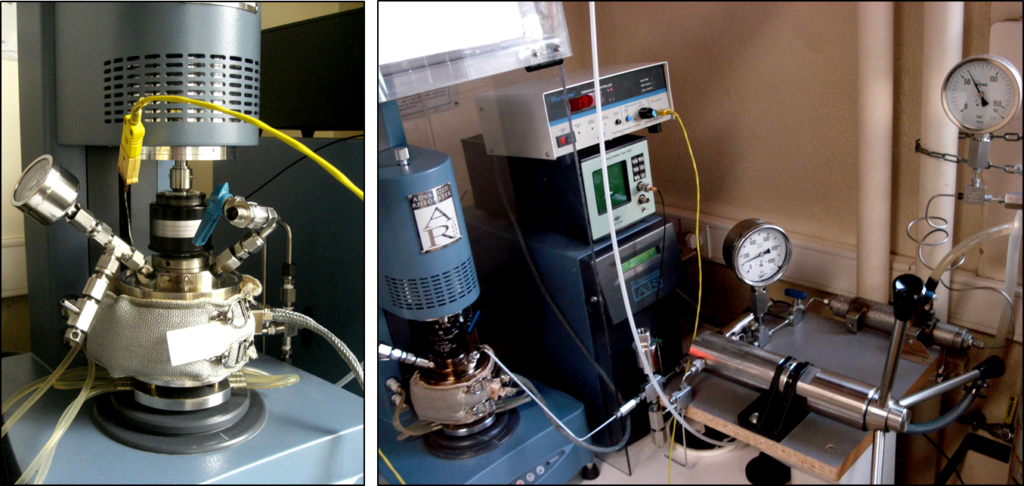
Rhéomètre à poudre permettant de réaliser des caractérisations de milieux granulaires et pulvérulents sous vibrations et humidité contrôlées :
